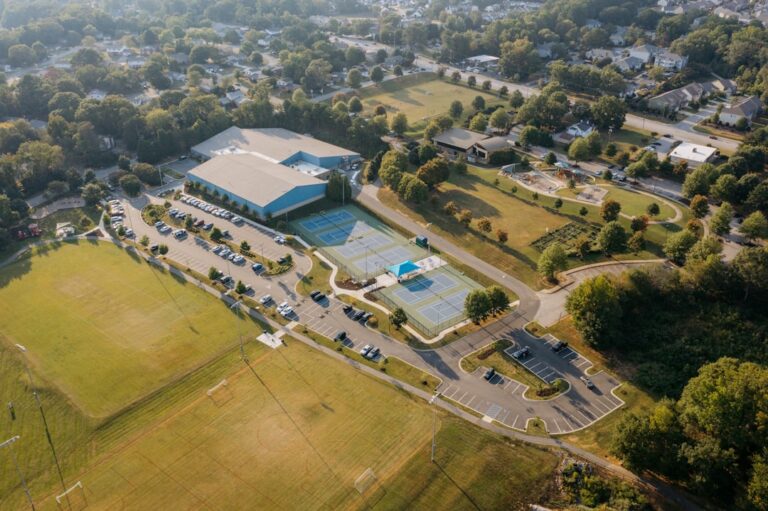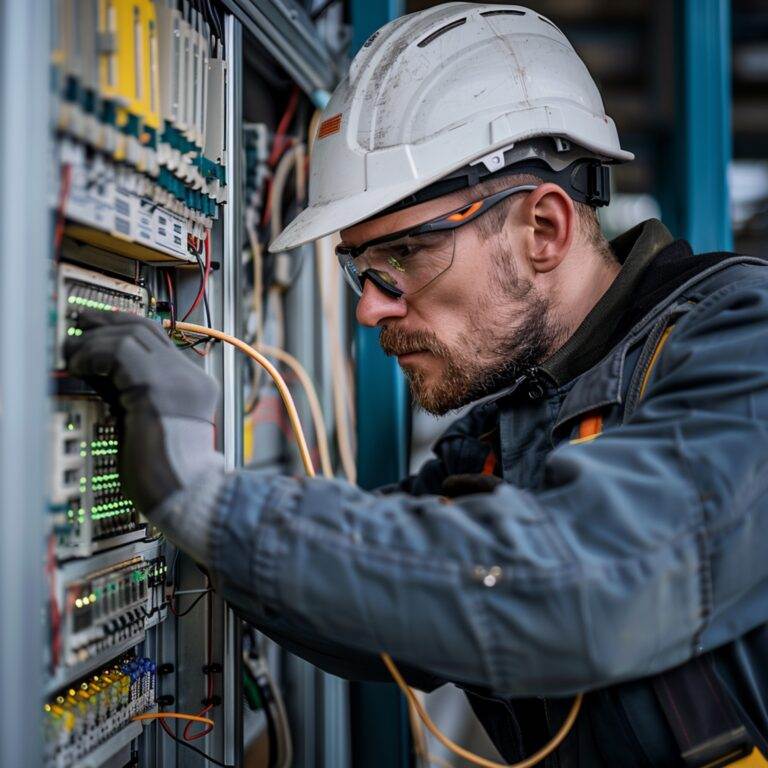Importance of Electrical and Plumbing Maintenance for Businesses
Ensuring Safety and Compliance
Electrical and plumbing systems are critical parts of any business infrastructure. Regular maintenance not only enhances efficiency but also prioritizes safety. A malfunctioning electrical system can lead to fire hazards, while compromised plumbing can result in flooding or water damage.
- Conducting routine inspections ensures compliance with local safety regulations.
- Regular servicing helps identify potential hazards before they escalate.
By investing in maintenance, businesses not only protect their assets but also safeguard employees and customers from accidents.
Preventing Costly Repairs and Downtime
Proactive maintenance can save businesses significant costs in the long run. Neglecting electrical and plumbing issues often leads to emergencies that disrupt operations, causing financial losses. For example:
- A minor leak left unchecked can escalate to significant water damage, necessitating expensive repairs.
- Electrical failures can result in operational downtime, reducing productivity.
Implementing a preventive maintenance strategy can mitigate these risks, ensuring that businesses run smoothly without the interruption of unexpected repairs. By focusing on maintenance, companies can create a reliable operational environment, setting the stage for lasting growth and success.
Electrical Maintenance Tips
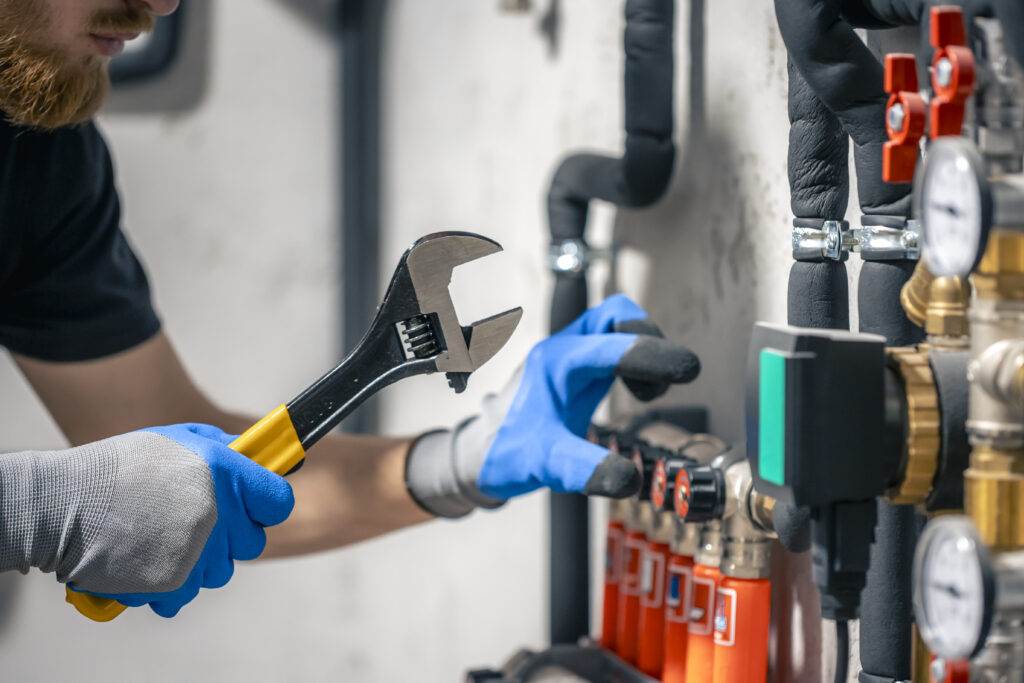
Regular Inspection of Wiring and Circuits
Continuing the theme of preventive maintenance, prioritizing a regular inspection schedule for wiring and circuits is essential for any business. These inspections can catch issues like frayed wires or loose connections before they lead to malfunction.
- Schedule inspections at least twice a year.
- Use licensed electricians to perform thorough checks.
Testing and Maintenance of Electrical Equipment
It’s equally important to conduct regular testing and maintenance of electrical equipment. This ensures efficiency and longevity.
- Implement a test log for all electrical devices.
- Replace aging or worn-out equipment to avoid unexpected failures.
Importance of Grounding and Surge Protection
Grounding and surge protection are often overlooked but crucial aspects of electrical safety. They minimize the risk of electrical shocks and equipment damage.
- Install surge protectors for sensitive devices.
- Regularly check grounding systems to ensure they’re functional.
By following these electrical maintenance tips, businesses can enhance safety, reduce risks, and promote operational continuity. A little proactive care today can prevent significant problems tomorrow.
Plumbing Maintenance Tips
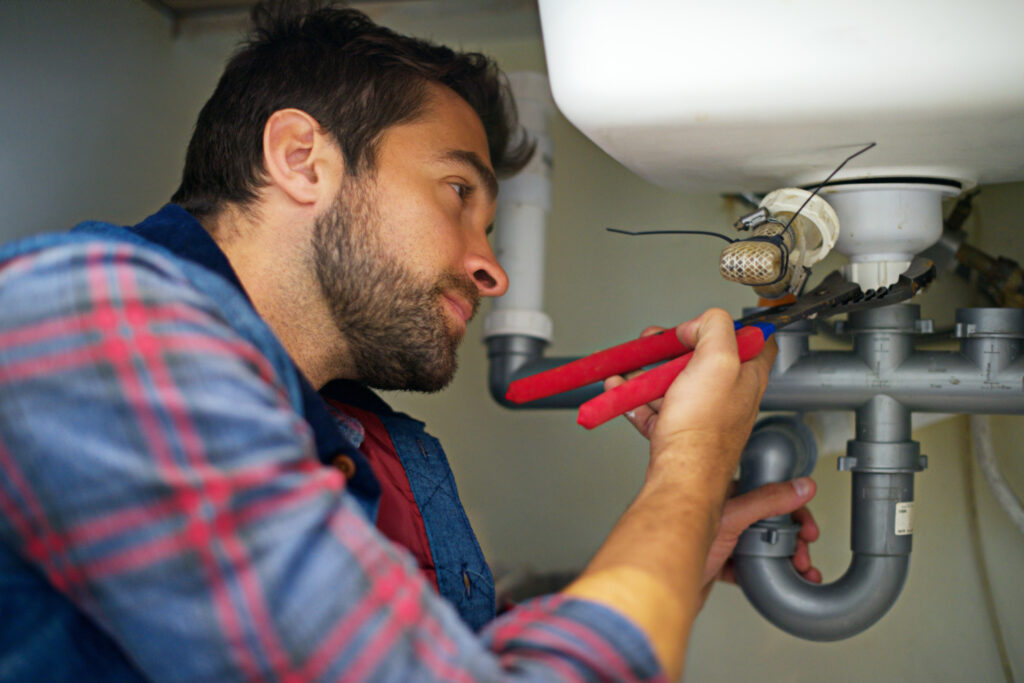
Checking for Leaks and Drips
Transitioning from electrical maintenance, plumbing upkeep is equally vital for business continuity. Start with regular checks for leaks and drips, as even minor issues can lead to significant damage over time.
- Inspect visible pipes for dampness or corrosion.
- Listen for any unusual sounds, like dripping or running water.
Addressing leaks promptly not only conserves water but also maintains the integrity of your business premises.
Clearing Clogged Drains and Pipes
Clogged drains are a common nuisance, and preventing them should be a priority. Regularly clearing drains can avert unpleasant backups.
- Use drain strainers to catch debris before it clogs the pipes.
- Schedule routine drain cleaning to maintain optimal flow.
Taking these steps helps ensure smooth plumbing operations and reduces the likelihood of emergencies.
Inspecting Water Heaters and Sewer Lines
Finally, don’t overlook the condition of water heaters and sewer lines. Regular inspections can identify potential issues before they become costly repairs.
- Check the temperature settings on water heaters for efficiency.
- Schedule professional inspections for sewer lines to prevent blockages.
These plumbing maintenance tips will help keep your business running smoothly, ensuring a functional and comfortable environment for employees and customers alike.
Creating a Maintenance Schedule
Developing a Routine Inspection Plan
With the essential plumbing tips established, it’s time to focus on creating a robust maintenance schedule. Developing a routine inspection plan is key to ensuring all systems — electric and plumbing — function correctly.
- Establish a frequency for inspections (monthly, quarterly, etc.).
- Assign specific responsibilities to team members for each inspection task.
This proactive approach not only identifies issues early but also fosters a culture of accountability within the team.
Documenting Maintenance Procedures
Documenting maintenance procedures is equally critical. Clear documentation ensures everyone understands their roles and responsibilities.
- Create checklists for inspections and regular maintenance tasks.
- Utilize a digital platform for easy access and updates.
This practice minimizes reliance on memory and helps maintain consistency across all maintenance activities.
Training Staff on Basic Maintenance Tasks
Finally, investing in training for staff on basic maintenance tasks can further strengthen your maintenance strategy.
- Offer workshops or training sessions for staff to familiarize them with common issues.
- Encourage reporting any irregularities they observe during daily operations.
By empowering staff with knowledge and skills, businesses can create a proactive maintenance culture that enhances overall safety and efficiency. A well-structured maintenance schedule is a cornerstone of effective operations, ensuring every facet of your business is well cared for.
Hiring Professional Services

When to Seek Professional Help
Transitioning from a reliable maintenance schedule, it’s important to recognize when to seek professional help for electrical or plumbing issues. While routine inspections can catch many problems, some situations require the expertise of trained professionals.
- Persistent leaks or electrical failures should never be ignored.
- If a problem interferes with daily operations, it’s time to call in experts.
Knowing when to reach out for help can prevent minor issues from escalating into major disasters.
Choosing Reliable Electrical and Plumbing Contractors
Once the need for professional services is clear, choosing the right contractors becomes essential. Reliable contractors can make all the difference in the quality of work and safety.
- Look for licensed and insured professionals to ensure credibility.
- Read customer reviews or ask for referrals to assess their reputation.
- Seek estimates from multiple contractors to gauge competitiveness in pricing.
By taking the time to select trusted electrical and plumbing professionals, businesses can ensure that their maintenance needs are met efficiently and effectively. This extra step fosters a safer work environment and leads to lasting solutions, enhancing the overall health of business operations.
Emergency Preparedness

Developing Emergency Response Plans
Following the essential task of hiring professional services, businesses must also focus on emergency preparedness. Developing a comprehensive emergency response plan is crucial for handling unexpected incidents effectively.
- Identify potential emergencies related to electrical or plumbing failures.
- Create clear protocols for staff to follow in each scenario.
Regularly reviewing and practicing these plans ensures that everyone knows their responsibilities, which minimizes panic in real situations.
Importance of Backup Systems for Critical Operations
In tandem with an emergency response plan, having backup systems in place for critical operations can be a lifesaver. Whether a power outage strikes or a plumbing mishap occurs, contingency plans protect business continuity.
- Invest in backup generators to keep essential systems running during outages.
- Consider secondary water sources or sump pumps to prevent flooding.
These measures not only maintain operational flow but also give peace of mind to business leaders and employees alike. An organization that prioritizes emergency preparedness is one step closer to resilient operations and consistent safety for everyone involved.
Sustainable Practices in Maintenance
Implementing Energy-Efficient Solutions
Continuing from the importance of emergency preparedness, businesses can also enhance their sustainability efforts through maintenance practices. Implementing energy-efficient solutions not only reduces environmental impact but also lowers operating costs.
- Upgrade to LED lighting to cut down on electricity usage.
- Utilize smart thermostats and energy management systems to optimize energy consumption.
These upgrades create a more efficient workplace while contributing to a greener planet, something most consumers and employees value today.
Water Conservation Strategies
Equally vital is the need for water conservation strategies. Efficient plumbing systems are essential not just for maintenance but for sustainability.
- Install low-flow faucets and toilets to significantly reduce water use.
- Regularly inspect plumbing fixtures for leaks and repair them promptly.
By adopting these practices, businesses contribute to conservation efforts while potentially saving substantial amounts on utility bills. Emphasizing sustainable practices in maintenance is not just about caring for the environment; it’s about fostering a responsible approach that reflects modern values and meets the expectations of a conscientious society.
Compliance with Regulations and Codes
Understanding Electrical and Plumbing Codes
As businesses continue to emphasize sustainability in their operations, compliance with regulations and codes should not be overlooked. Understanding electrical and plumbing codes is crucial not just for safety but also for avoiding potential legal issues.
- Familiarize yourself with local building codes and regulations to ensure adherence.
- Keep updated on any changes in codes that may impact your maintenance practices.
Knowledge of these codes guards against costly fines and enhances the safety standards within your workplace.
Ensuring Regulatory Compliance in Maintenance Practices
Moving beyond mere understanding, ensuring regulatory compliance in maintenance practices is a proactive approach that protects your business long-term.
- Schedule regular reviews of compliance requirements relating to electrical and plumbing systems.
- Document all maintenance activities to provide a clear record for inspections.
By integrating compliance into your maintenance routines, businesses foster a culture of responsibility, demonstrating a commitment to safety and ethical practices. This attention to detail not only safeguards employees and customers but also builds trust within the community, reinforcing the organization’s reputation.
Monitoring and Evaluation
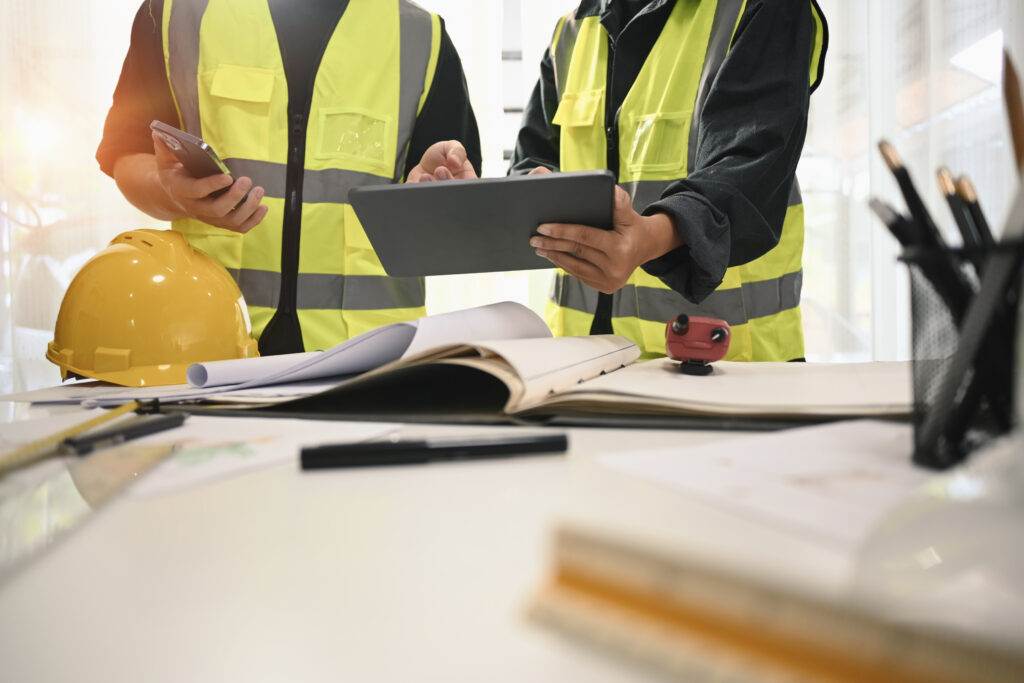
Tracking Maintenance Records and Performance
In the journey toward effective compliance with regulations and codes, the next critical step is implementing a robust system for monitoring and evaluation. Tracking maintenance records and performance is vital for understanding how well systems are functioning over time.
- Maintain detailed logs of all maintenance activities, including dates, issues addressed, and equipment serviced.
- Utilize software solutions to streamline record-keeping and allow for easy access when needed.
This practice not only creates accountability but also provides valuable data for analyzing performance trends.
Continuous Improvement in Maintenance Strategies
The final piece of this puzzle is the commitment to continuous improvement in maintenance strategies. Regular evaluation of maintenance practices ensures that businesses remain adaptable and proactive.
- Conduct periodic reviews of maintenance outcomes to identify areas for enhancement.
- Foster a culture of feedback among staff to solicit insights on operational challenges.
By regularly refining maintenance strategies, organizations can optimize efficiency, reduce costs, and enhance the lifespan of electrical and plumbing systems. Embracing a mindset of continuous improvement ensures ongoing success and sustainability in all operations.
Conclusion and Recap
Summary of Key Maintenance Tips
As we reflect on the journey of establishing efficient maintenance practices for electrical and plumbing systems, it’s essential to revisit the key takeaways that contribute to a safe and productive environment.
- Routine Inspections: Regularly check wiring, plumbing, and equipment for potential issues.
- Professional Assistance: Don’t hesitate to seek expert help when necessary.
- Emergency Preparedness: Develop clear response plans and invest in backup systems.
- Sustainable Practices: Implement energy-efficient and water-conserving solutions for long-term benefits.
These elements form the foundation of a robust maintenance strategy that prioritizes safety, efficiency, and sustainability.
Encouraging a Culture of Proactive Maintenance
Finally, fostering a culture of proactive maintenance within your organization is key to success. Encourage employees to take ownership of their workspaces and promote open communication regarding maintenance needs.
- Host regular training sessions to elevate awareness.
- Recognize and reward proactive behaviors to strengthen this culture.
By embedding proactive maintenance into your company’s ethos, you not only protect your assets but also ensure a reliable and efficient operational landscape for the future.


